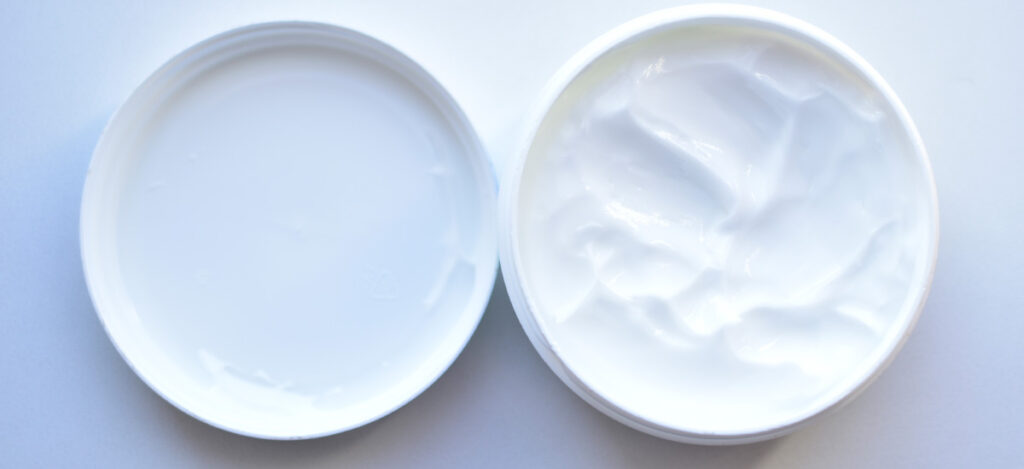Does the FDA Regulate Cosmetic Products?
What are cosmetic products?
Cosmetics are products applied to the human body (generally on top of the skin) for cleansing and beautification purposes.This article covers FDA cosmetics testing, cosmetics regulation, and FDA cosmetics drug regulations.
Examples of everyday cosmetics:
- Skin moisturizers
- Creams
- Facial makeups
- Shampoos
- Perfumes
- Toothpaste
- Deodorant
What products are “cosmetics” under the law?
Like medical devices or drugs, cosmetics are defined by their intended use.
The FDA defines cosmetics as:
“Articles intended to be rubbed, poured, sprinkled, or sprayed on, introduced into, or otherwise applied to the human body…for cleansing, beautifying, promoting attractiveness, or altering the appearance.”
Are there products that are considered both a cosmetic and a drug?
If a product is intended for therapeutic use, it is considered a drug. Examples of therapeutic uses are treating disease, preventing disease, or affecting the body’s structure (or function). Thus, some products qualify as both a cosmetic and a drug (an FDA cosmetics drug).
Common cosmetic/drug combination products are:
- Anti-dandruff shampoo
- Toothpaste containing fluoride
- Antiperspirant deodorants
- Moisturizers or makeup with sun-protection claims
Does the Food & Drug Administration (FDA) need to approve cosmetics before they are sold?
Cosmetic products and ingredients do not need FDA approval before being marketed. In other words, cosmetics testing and regulations are not dictated by the FDA. The exceptions to the above are cosmetics that are also considered drugs, biologics, or medical devices. Also, cosmetics that contain color additives are FDA-regulated. Thus, cosmetics testing and regulations are needed for color additive products. All cosmetic products must not contain prohibited ingredients and can only contain certain amounts of restricted ingredients. Further, all ingredients must be appropriately labeled (including any required warning statements) and safe under the labeled use. Any cosmetics with inappropriate labeling or misbranding may be subject to FDA violations and law enforcement action.
Note that the FDA does inspect cosmetic manufacturing facilities to assure product safety and ensure product labeling and branding are correct.

Can the FDA order a recall of defective cosmetic products from the market?
Only manufacturers (or distributors) of products can voluntarily remove a cosmetic from the marketplace. The FDA is not authorized to recall hazardous, defective, or deceptive cosmetic products. However, the FDA monitors cosmetic companies and may request a product recall if a business is not willing to remove a dangerous product from the market without the FDA’s written request. For additional information on FDA recall policies, please see “FDA Recall Policy for Cosmetics.”
Though the FDA is not technically authorized to recall cosmetics, the FDA can utilize the federal court system to remove defective and misbranded cosmetics from the market. For example, the FDA may request a federal district court to issue a restraining order against a manufacturer or distributor of a hazardous cosmetic product to keep it out of the market. Additionally, cosmetics in violation of the law may be seized, a process where the products are taken away from the company and controlled by the government. Individuals violating the law may also face criminal charges for defective, misbranded, or hazardous cosmetics. Both domestic and imported cosmetic products are subject to the laws of the federal court system when marketed in the United States.
Who is responsible for cosmetic product safety?
Individuals or businesses that manufacture or market cosmetics have a legal responsibility to ensure the safety of their product(s). Also, while cosmetic companies are responsible for the product’s safety, they are not legally required to share their product safety information with the FDA and the FDA does not require tests to prove the product’s safety. In most cases, cosmetic product safety is based on publicly available toxicological test data for individual ingredients or product formulations similar to the cosmetic product.
Summary
Overall, cosmetics are products defined by their intended use that are applied to the human body for cleansing and beautification purposes. If a cosmetic product also provides a therapeutic use, it qualifies as both a cosmetic and an over-the-counter drug. Cosmetic products and ingredients do not need FDA approval before being marketed. The exception to the above is cosmetics that are also considered drugs, biologics, or medical devices. Also, cosmetics that contain color additives are FDA-regulated. Though the FDA is not technically authorized to recall cosmetics, the FDA can utilize the federal court system to remove defective and misbranded cosmetics from the market. Thus, whether you have a new or existing cosmetic product, ensure you choose a contract manufacturing organization that can support you with your unique cosmetic product filling needs.
MycoScience is a contract manufacturing organization specializing in sterile syringe and vial filling cosmetic products or for products used in animal studies. In addition, MycoScience offers testing services, including Preservative Efficacy Testing, Cytotoxicity Testing, Bioburden Testing, Cleaning Validations, Microbial Aerosol Challenge Testing, Accelerated Aging, Microbiology Testing, EO Residual Testing, Bacterial Endotoxin Testing, Package Integrity Testing, Sterilization Validations & Environmental Monitoring services medical devices and allied industries. MycoScience is an ISO 13485 certified facility.
References
United States Food & Drug Administration. Cosmetics & U.S. Law. 2020.
United States Food & Drug Administration. FDA Authority Over Cosmetics: How Cosmetics Are Not FDA-Approved, but Are FDA-Regulated. 2022.
Sharing this in your social netwroks

